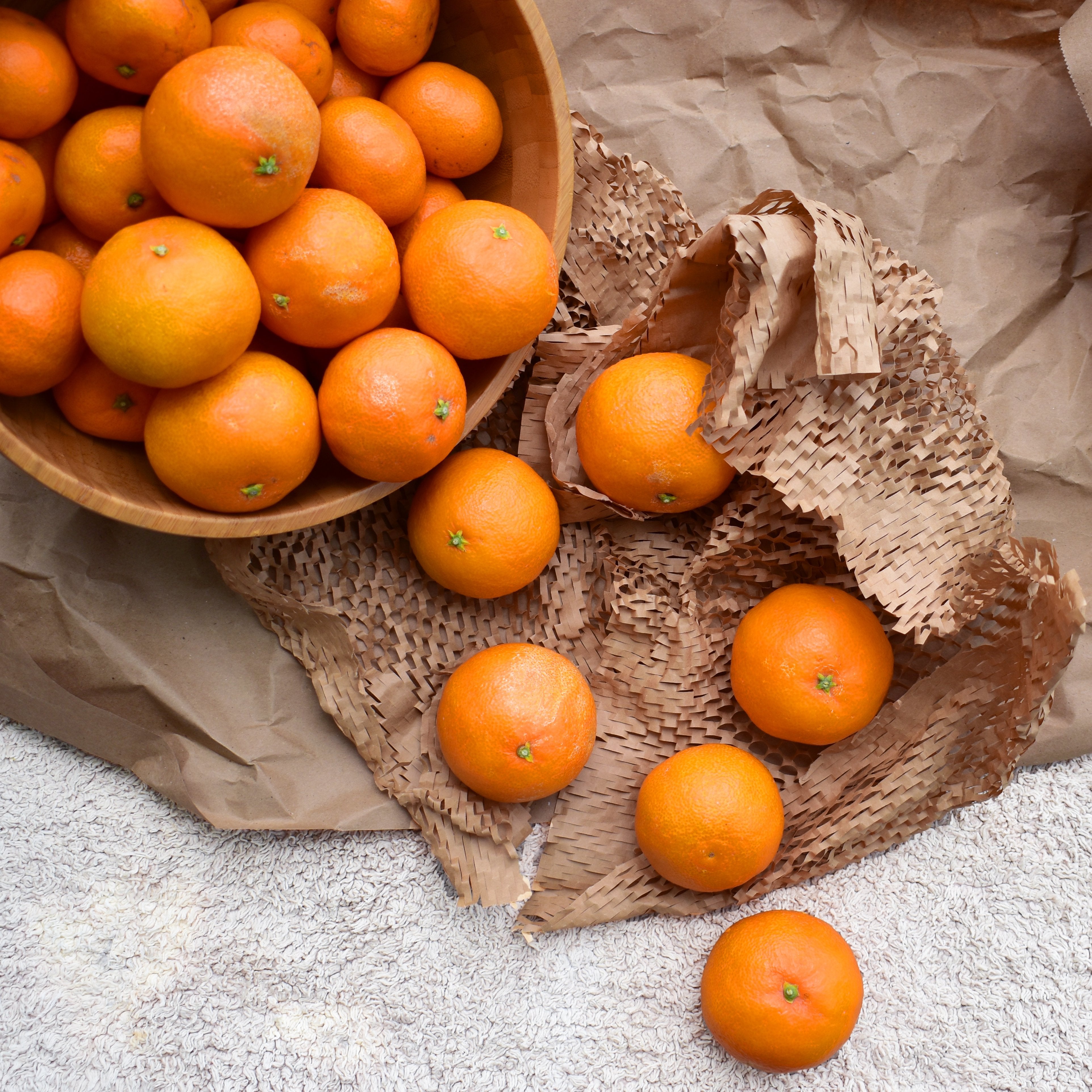
Jeju Tangerines: What Makes Them Special?
One of the reasons behind Korea’s massive global popularity is their delicious cuisine, and that includes their amazing fruits. Besides the famous Korean strawberries, tangerines are also a widely popular fruit in Korea, with Koreans consuming two times more tangerines than apples.
The citrus fruit is particularly popular during the cold Korean winters, partly due to the high vitamin C content in tangerines, which provides an immunity boost during the harsh winter months. The main reason for this, however, is the perfectly sweet and juicy tangerines sold in abundance during this period, which is when most varieties are in season.
95% of the Korean tangerines that are enjoyed both locally and internationally are actually produced in Jeju Island, located south of the mainland. These Jeju tangerines have made a reputation for being consistently enjoyable and uniquely delicious, with a high sugar content and thin peels. In fact, tangerines are one of the iconic staples of Jeju Island, with countless tangerine trees and plantations found along the island, and an abundance of tangerine-inspired local treats.
So, what is it that sets Jeju tangerines apart from other forms of the fruit? Here are some of the main reasons why Jeju tangerines are so special, and why you need to give them a try!
Ideal Cultivation Environment

Due to the physical landscape and environment of Jeju Island, the tangerines are able to grow under ideal conditions to be optimally delicious. With Jeju Island being a volcanic island, the land is filled with rich, fertile volcanic soil.
In addition, the area enjoys an oceanic climate in a warm temperature zone, allowing crops an abundance of sunshine. These work together to create an environment ideal for cultivating sweet and juicy tangerines that have a low acidity.
Advanced Production & Farming System

The production of Jeju tangerines has strong support from the local government, which outlined policies that keep an advanced farm distribution system in place. The government policies also ensure a highly-structured quality production process which oversees the cleanliness and safety of the entire procedure.
Jeju tangerines undergo processes such as selective breeding, scientific orchard management techniques, and have government support in allowing the quality cultivation and export of high-quality tangerines to mainland South Korea, and the rest of the world.
Rich Historical Significance

Tangerines are not just a tasty fruit, but also hold a special place in the rich history of Korea. In the year 476, King Minju of the Baekje kingdom was presented mandarin oranges from the Tamna kingdom, also known in the present day as Jeju Island.
Tangerines were then used in Korea for ancestral rites, medicinal purposes and had a distinguished purpose of entertaining honoured guests, including members of the royal family. With this popularity, the rulers of historical Korea were known to then manage an official orchard in Jeju. This cultural and historical significance that Jeju tangerines hold shows how these fruits are special not just for their taste, but also holds a deeper meaning for locals.
Part of Jeju’s Culture

The Jeju tangerine is not only the area’s top-loved fruit, but has also solidified itself into a culture of its own in Jeju Island. Around the island, a wide array of food items can be seen to be inspired by the popularity of Jeju tangerines.
These range from tangerine-themed cafes like Tangerine Flower Cafe, which offers patrons a large variety of snacks incorporating local tangerines (like Tangerine Tea and Tangerine Tiramisu), to places serving specialty foods like Acorn Kitchen, which serves a unique Tangerine Soba Noodle dish.
Activities surrounding Jeju tangerines can also be found around the island, and serve as must-try highlights for tourists. These include tangerine-picking experiences on local plantations, snack-making experiences and even a local Jeju Tangerine Museum.
--
With tangerines being such a big part of the identity and appeal of Jeju Island, it’s no wonder that Jeju tangerines are especially delicious and popular. These citrus fruits are an absolute must-try, as the sweet and juicy Jeju tangerines are sure to be well-loved by all. There are a huge variety of different types of Jeju tangerines, each with their own unique characteristics and appeal, so be sure to check them all out.
Read More: Types of Korean Jeju Tangerines That You Must Try











Comments
Leave a comment